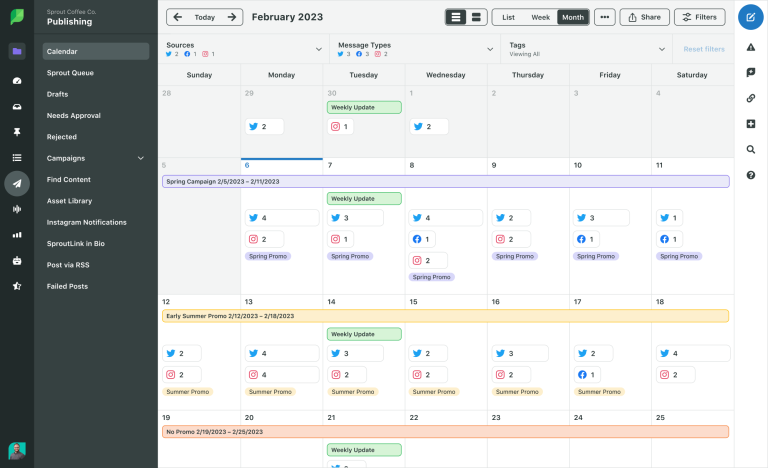12 Sales Training Topics For Effective Sales Teams
An effective sales strategy is only as good as the person delivering the pitch. A knowledgable, well-trained sales team plays a foundational role in the success of many businesses. That path starts right here.
Among companies who have implemented sales enablement and training solutions, 76% report a rise in sales of 6-20%. Sales teams who deliver the most sales are also the best trained, so consider the following sales topics for your agents in your training programs.
1. Product knowledge training
Product training and updates should be a mainstay in sales team training topics. Product knowledge and expertise should be a key competency of any salesperson. Fortunately, this type of training program can include different teaching methods, such as hands-on training and video demonstrations.
Ensure product knowledge training always covers the latest product updates, customizations, tools, integrations, roadmaps, and advanced usage. If possible, seek the help of product designers or engineers to demonstrate new products or services.
2. Competition monitoring and market research
A salesperson needs to monitor the competition regularly so they can adapt their sales strategies and create better sales proposals. Sales training also allows the organization as a whole to assess how it fares compared to its competition.
They must also learn how to conduct market research using the right research tools and techniques. Teach them how to analyze data from these tools. During training sessions, go over your product’s key differences and advantages against the competition.
Read more: Sales Enablement Software Guide
3. Soft skills training
Developing soft skills among a company’s sales team is an often overlooked training topic. Soft skills, like effective communication, time management, and active listening, allow sales reps to connect and develop strong relationships with prospects and customers.
Developing soft skills in sales teams is often not prioritized, but they are just as important as hard skills (technical expertise). Like any other training program, identifying current skills gaps among team members is a good way to determine which soft skills to focus on. In-person training, interactive online courses, or a hybrid learning approach can work. Consider also one-on-one coaching sessions, workshops, and peer mentoring.
4. Prospecting and outreach
Sales prospecting and outreach are two sales training subjects that go hand in hand. They also evolve over time, so they need to be included in regular sales training.
Research proves that prospecting sets up outreach efforts for success; top salespeople spend an average of six hours every week prospecting. Mastering your company’s ideal customer or target audience is key for efficient prospecting. Try to find ways to reinforce salespeople’s familiarity with your company’s target audience by doing quizzes to test their ability to prospect clients based on the ideal customer profile.
Outreach efforts like cold calling and outreach emails are essential sales skills. Coaching and role-plays are effective training methods for this skill set. However, it is also imperative to stay current on the current outreach methods, such as social media messaging.
5. Pipeline management
Efficient pipeline management is closely linked to sales performance, as proven by a McKinsey study that showed it is the key sales skill differentiating high-performing from low-performing sales reps. Without it, opportunities can be lost.
Sales team members should know how to build their pipeline, prioritize leads and prospects based on lead quality and sales urgency, monitor the various stages of their sales funnels, and be able to measure and analyze results.
Training updates on how to efficiently navigate and utilize the company’s CRM platform or sales enablement software should be tackled in sales training programs.
6. Training salespeople on sales technology
Sales trainers should include training salespeople on the various tools the company uses, especially sales technology. Sales enablement and sales software automate repetitive processes and free up time for sales reps to focus more on selling.
Ensure your sales team’s competency on using the software tools are maximized. It is common that reps are aware of the tools at their disposal but have not been really taught how to use them to their advantage. Leverage training sessions offered by software vendors, including advanced training.
7. Digital marketing techniques
Digital marketing should be included in sales training as it has become an essential part of the sales process with the advancement of technology. Cold email marketing, social media prospecting, and intelligence gathering are few topics you can get started on.
Social media marketing is also a good sales training topic for agents. Orient them on how to manage and present themselves on social channels and educate them on different social selling tactics—outreach messaging, posting on LinkedIn, hosting online events, and engaging with prospects.
Read more: Sales Software Guide
8. Online presentations, events, and webinars
Since remote work and virtual events have gone mainstream, it is crucial to develop skills specific for delivering online presentations and webinars. These are great additions to a salesperson’s arsenal to connect with potential clients and to be able to demonstrate product value.
Practical skills to develop for virtual presentations include knowledge and application of webinar tools, slide decks, and presentation delivery.
9. Managing objections and rejections
Salespeople need to learn how to be comfortable with objections and rejections and how to handle them accordingly. They need to develop the skill of managing objections because there is always a chance that those who initially object or reject an offer will still convert into a sale. Ensuring reps are versed in handling common objections and know how to respond accordingly goes a long way in ensuring there is no lost revenue for the company.
During sales training, have your sales members undergo brainstorming sessions to identify possible sales objections and rejections and determine communication tactics for each objection. Practice calls and role-playing can be used to practice this skill.
10. Perfecting sales pitches and sales presentations
Sales pitches make or break sales. Effective sales pitches are iterative, fortunately, so sales agents can practice using a script and modify it accordingly. With evolving sales environments, though, sales reps also need to be trained on how to tweak sales pitches based on the platform they are doing their pitches, such as when they do cold emails or calls, conduct sales on LinkedIn, and more.
To practice sales pitches, have team members rehearse them aloud with fellow agents. They can revise their pitches based on feedback. This way, they can learn from one another and pick up new techniques they can implement independently.
11. Building customer relationships
Good customer relationships are the foundation of sales conversions. Building rapport, starting conversations with prospects, handling objections, and nurturing clients after a sale or rejection all build up to developing long-lasting relationships with customers. If done well, they can also build loyalty and bring more clients in way of referrals.
Developing good customer service skills is enhanced by training and constant feedback from fellow agents, customers, and leaders. During training sessions, have sales reps brainstorm for conversation starters to know how to make friendly conversation with prospects. Training on rapport building can also build connections with customers.
12. Closing deals
Closing a deal, or asking for the sale is the most challenging phase in any sales process. It requires many of the skills mentioned in this guide, such as effective communication and resistance handling.
Part of closing deals is the ability to recognize buying intent and signals and implement effective closing techniques. Sales training on this skill can involve practical follow-up methods, customer service skills, and role-play of effective closing techniques, such as the assumptive close, the summary close, and the urgency close.





